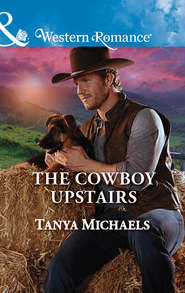По всем вопросам обращайтесь на: info@litportal.ru
(©) 2003-2025.
✖
A Mother's Homecoming
Автор
Год написания книги
2018
Настройки чтения
Размер шрифта
Высота строк
Поля
She turned onto the long and winding gravel driveway. The Wilson mailbox was the same faded, ugly mustard yellow. An enduring copse of trees still blocked the view of the house from the road. However, the weeping willow that had once been at the front of the wild and unruly yard was gone.
Mae’s 1980 LTD Crown Victoria was parked in the carport attached to the brick two-bedroom home; the rusted vehicle clearly hadn’t been roadworthy in some time. Pam leaned forward, staring through her windshield. The car wasn’t the only thing in a state of disrepair. Instead of curtains or the familiar living room suite visible through the house’s grimy windows, there were large flat boards blocking further view. The concrete slab generously called a front porch had cracked, and flower-topped weeds flourished in the fissures. Several roof shingles had fallen atop neglected shrubs, and another hung precariously, as if it were barely holding on and planned to give up the ghost at any minute.
Pam knew the feeling.
She parked the car, sagging back against her seat. Defeat and relief swirled in a bitter cocktail. Mae didn’t live here.
No one lived here. It didn’t appear as though the house had been sold, what with the Victoria parked in its habitual spot. If not for the deliberately boarded windows, she might have worried Mae had simply slipped and broken her fool neck with no one the wiser. Pam experienced a rare twinge of regret that she and her mother hadn’t kept up some sort of communication over the years … Christmas greetings, postcards, hate mail with a return address.
Had her mother moved into the nursing home in Mimosa? Surely not. Although the woman’s lifestyle had probably aged her prematurely, she was only in her fifties. Had she perhaps moved in with her pursed-lip, disapproving older sister Aunt Julia? Pam shuddered at what that household would be like. Poor Uncle Ed.
Pam opened her car door, though she wasn’t sure why she felt the need for a closer look at her childhood home. She didn’t have a key. Breaking in to the tiny residence would be relatively simple but also relatively pointless. She doubted she’d find more than spiders and field mice. Why waste time here when she should be tracking down Mae? As much as the thought of talking to her mother ripped at the lining of Pam’s stomach, that’s what she had come all this way to do.
During a discussion with Annabel about making amends, she’d groused in a moment of self-pity that it was too bad Mae had never joined the program because there was a woman with some amends to make. No-nonsense Annabel had pointed out in her wry, get-a-clue way that hating Mae was damaging Pam far more than her estranged mother.
Pam had decided that if she couldn’t get forgiveness from the people she’d hurt—Nick’s face flashed in her mind—the next best thing she could do was to forgive the person who’d hurt her. Maybe once Pam made peace with her mother, she could truly move forward. Because right now, Pam’s life was as much in shambles as this pitiful little house.
Kicking a rock out of her path, she stepped closer. The room on the corner closest to her was the kitchen. The majority of meals in Pam’s childhood had consisted of cereal or microwaved entrées. Every once in a great while Mae had cooked up something fantastic, mostly to impress new boyfriends when she was sober enough to care. There had been one guy, a truck driver, who’d returned to them again and again for an entire winter. He’d taught Pam how to play guitar. It had been one of the happiest seasons of her life. She had fond memories of strumming in the living room and losing herself in the discovery of new chords.
Bittersweet were the later memories of that same living room when she and Nick, juniors in high school, had lost their virginity together on the couch. They’d been kids, completely inept at what they were doing. Yet how many times in the years since had she wished she could once again sink into his embrace, those arms made muscular by football practices, and made safe by his love?
According to Nick’s mother—furious that Pam had the gall to phone after all these years, even if it was only to get contact information for an apology—Nick was happily remarried and raising his daughter in North Carolina. Our daughter. Pam’s chest squeezed so tightly she couldn’t breathe. Finally a harsh sob grated out, opening up her airway and allowing her to inhale in jagged, hiccupy breaths.
The sound startled a group of grackle in the tree above her. She couldn’t help envying their escape as they took to the air. One stubborn bird maintained its perch, narrowing its beady black eyes as if to challenge, Now what?
Excellent question.
PAM HAD BEEN ON THE WAY to Aunt Julia and Uncle Ed’s when her car overheated. As proof that there was indeed a God, the car sputtered to a stop right across the street from Granny K’s Kitchen. Pam wondered if Granny K’s, a venerable town institution, still served the best chicken-fried steak known to man.
Technically she shouldn’t be splurging on dinner or she’d be broke by the end of the week. Then again, she was supposed to be taking life one day at a time. Besides, Annabel had admonished more than once that Pam was “damn near skeletal.” A gravy-laden meal from Granny K’s while the car cooled down would be good for both Pam and the vehicle.
Granny K’s was the type of establishment where you seated yourself. Within minutes, Pam had placed an order for chicken-fried steak and a side of mashed potatoes. Although the menus had been redesigned, she was thrilled to see all her favorite dishes still remained.
The platinum-haired waitress—Helen, according to the unevenly spaced letters on a white plastic rectangle—bobbed her head in acknowledgment of Pam’s order. “I’ll be right back with your glass of water, hon.”
“Wait.” Pam surprised herself with a burst of curiosity. “The original owner, Kat McAdams? Does she still run the place?” Pam had no real sense of the proprietor’s age. When Pam was a teenager, Kat had seemed ancient, but anyone over twenty-five had seemed that way. Now that Pam thought about it, she doubted Kat had been anywhere old enough for granny status back then.
Helen narrowed her hazel eyes, assessing. “You from around here?”
“A long time ago, yeah.”
“Then you don’t know about the stroke? Kat recovered, but the doctors told her she had to slow down. She has a room over at Magnolia Hills Senior Community, but she’s in here at least once a week to make sure everything’s shipshape. She sold part ownership to Davy Lowe, but he didn’t come in to oversee dinner shift tonight because his champion beagle is supposed to have her pups.”
“Thank you.” Pam had cut all ties with Mimosa the night she left; the relatively impersonal inquiry about Kat McAdams was a low-risk way of easing back into her past life. It was unexpectedly reassuring to know that Granny K was alive and kicking and still looking out for her diner.
Helen moved to the next table, greeting a young couple and their boisterous toddler, and Pam surveyed the diner. The setup hadn’t changed much over the years, although the color scheme—formerly red and white—had been altered to a deep green and softer ivory. Additional booths had been installed toward the back where there had once been a jukebox and a coin-operated air-hockey table. During her perusal of the surroundings, Pam noticed that a young woman—maybe early twenties—was staring at her. Pam couldn’t understand why. The stranger seemed too young to be anyone from Pam’s past. And too old to be Faith.
Swallowing, Pam pushed away the thought. If she kept picking at emotional scabs, she would never heal.
Suddenly she realized that the other woman had stood and she looked as if she were coming this way. Crap, for all Pam knew, Mae had remarried and this girl was her stepsister. But before the stranger had taken two steps, another woman ducked into Pam’s line of sight and the twentysomething altered course.
“Why, Pamela Jo, that is you,” a tiny redhead drawled.
Pam tensed, feeling ridiculously vulnerable without her baseball cap and no food yet to occupy her attention or make her look busy. Luckily the woman already cheerfully seating herself on the other side of the table seemed friendly. She wore a sleeveless floral dress and barely topped five feet—not exactly the intimidating type. If she managed to break a hundred pounds, it would be because the heavy cloud of auburn framing her face tipped her over the edge. Pam forced her expression into an answering smile.
“Yep. It’s me. But I just go by Pam now.”
The woman winked, conspiratorial. “Now that we’re all grown up, hmm? Well, I’m still Violet, same as I ever was.”
Violet Keithley. Pam blinked, reacclimating to yet another piece of her past rising up to meet her. “Sure, I remember you.” They’d been in different grades, not close at all, but Violet had been a member of church choir with her. Backup soprano, not one of the frequent soloists like Pam.
“It’s so nice to see you again.” Violet shook her head, setting the voluminous mass in motion. “I always expected I’d turn on the radio one day and hear your voice.”
“Yeah, well … So are you here tonight with your family? Husband, kids?” Pam was more than willing to coo appreciatively over wallet-sized pictures of Violet’s children if it meant not having to talk about herself.
“Oh, no.” Violet tittered. “Haven’t found the right guy to make an honest woman of me yet. My sister Cora got married last June and told me I should take up fishing to meet men. That’s how she did it.”
At the image of ultrapetite Violet wrestling a bass out of the Yazoo River, Pam fought a grin.
“I was going to meet one of my friends for dinner,” Violet continued, “but she called when I was already halfway here to say her little boy is feeling funny. He doesn’t usually mind staying with his daddy, but you know how it is. Everyone wants Mama when they’re sick.”
Not everyone.
Almost as soon as Pam formed the sardonic thought—born more of habit than heat—she reconsidered. Alcoholism was an illness and, as part of her attempted recovery, here she was seeking Mae.
The waitress returned with two glasses of water and offered a menu to Violet, who glanced questioningly across the table. Pam shrugged. Violet was harmless enough and no doubt could fill in some of the blanks about life in Mimosa since Pam’s departure.
“You mentioned mothers,” Pam said awkwardly once the waitress had gone with Violet’s order. “Do you, um, remember mine?” Colorful at best and a drunken home-wrecker at worst, Mae was nothing if not memorable. Pam felt the best way to bring the woman into conversation was slowly. No telling how many townsfolk had legitimate axes to grind.
“Mae Wilson. Of course.” Surprisingly Violet’s expression softened. “My condolences on her passing.”
“Passing?” The clatter of the diner fell away, drowned out by the pounding in Pam’s ears. Although she’d earlier allowed the snarky thought about Mae breaking her neck inside her house—which now struck her as in incredibly poor taste—she hadn’t for a second believed it. Mae had once totaled a boyfriend’s car and walked away without a scratch on her.
Besides, this was her mother. Wasn’t there some sort of psychic umbilical cord? The woman who had brought her into this world and raised her had died. Ceased to exist. Wouldn’t Pam have experienced at least a minor twinge?
Maybe you were too wasted to notice the twinge.
Violet pressed a hand to her heart, and Pam lip-read her words more than heard them. “You didn’t know? My God. I’m so sorry. I thought …”
Blindly, Pam grabbed the glass in front of her and instinctively tossed some of its contents down her throat. Instead of the burn of whiskey she still half expected on some base, cellular level, there was only tepid water. It took her a moment to reorient.
Right, she didn’t drink whiskey anymore.
And Mae Danvers Wilson wasn’t alive anymore.
I’m too late.
Perhaps it was hypocritical to feel devastated by the loss of a mother she’d barely known even when they shared a house. Having not interacted with Mae in years, it was silly to think that not doing so now would truly affect her day-to-day life. But to drive all this way, to have rehearsed and rehashed and wondered for hundreds of miles how her olive branch would be received …











